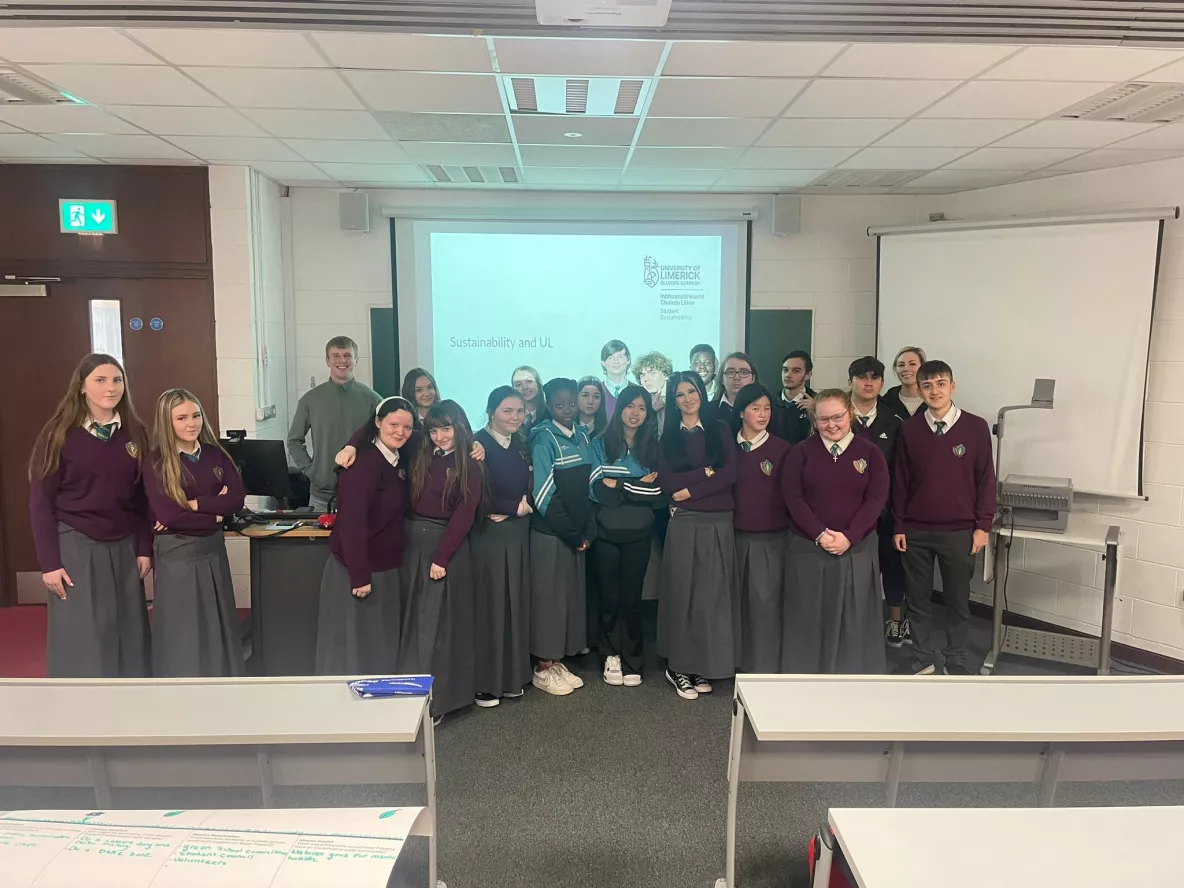
On April 18, 2024, a vibrant collaboration unfolded at the University of Limerick as students from Thomond Community College joined forces with UL's Access Office for an immersive sustainability workshop. Led by Student Sustainability Coordinator Jack O'Connor, the event aimed to ignite a passion for sustainability among the visiting students and equip them with the tools to enact positive change within their school.
The workshop formed part of an Orientation Day visit of the 3rd year students from Thomond Community College, having completed the Broadening Horizons Programme facilitated by UL's Access Office. This On-Campus visit is part of the Orientation Programme that the Access Office leads as part of the Second-Level Engagement with schools.
Throughout the workshop, Jack emphasised the pivotal role of youth engagement in driving sustainability initiatives. He underscored the importance of amplifying the voices of young people, recognising their unique perspectives as catalysts for transformative action within their communities.
During interactive sessions, the students delved into a sustainability project design exercise, pooling their ideas and creativity to envision practical solutions for enhancing sustainability at their school. By fostering a collaborative environment where every voice was valued, the workshop nurtured a sense of ownership and empowerment among the participants.
This inclusive approach ensured that sustainability initiatives resonated authentically with the needs and aspirations of the Thomond Community College community. By harnessing the collective ingenuity of young minds, the workshop sparked innovative thinking and inspired a shared commitment to addressing sustainability challenges head-on.
The Centre for Sustainable Futures and Innovation (CSFI) is responsible for providing sustainability training to the University community through the Mission Lab. The Mission Lab is integral to advancing UL’s novel approach of ‘mission-driven learning,’ where traditional sustainability training is elevated through project-based learning experiences. This model bridges the gap between theoretical knowledge and practical application, offering students and staff the opportunity to engage with the latest developments and practices in the field.
Mission Lab acts as a platform for experiential learning and up-skilling for all those who engage with its portfolio of sustainability missions. Importantly, the breadth of UL’s Sustainability Framework creates an opportunity for the university community to go beyond siloed disciplines and reap the benefits of cross-domain learning. Knowledge transfer and cross-institutional learning play an essential role in sustainability training.